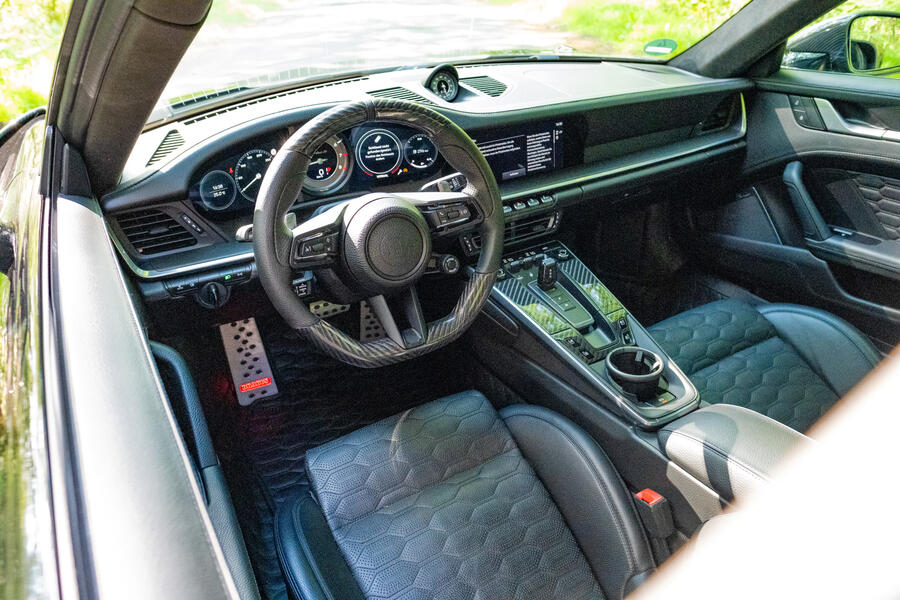As for why the Turbo S was specifically chosen, again, not complicated. It’s the 911 that is most Brabusy. The Carrera isn’t wild enough and the GT3 is too racy. Neither quite tallies with the company’s unofficial ‘300kph with one hand on the wheel’ mantra, but the Turbo does. Power, security and relative luxury are in its DNA.
What turns a 911 Turbo S into a 900 Rocket R is split almost equally between what’s visible and what is hidden from view. A donor car is stripped then fitted with a 70mm-wider CFRP bodykit. The extra width is in the offset of the forged, turbo-disc wheels, rather than any changes to the suspension, and attention to detail is clear. Canyon-esque vents that inhale or expel airflow are artfully torn in the flanks and the ducktail spoiler flows into the rear haunches seamlessly. It’s plenty lairy.
As for mechanicals, the Bilstein damper rates are a little firmer across the board, although they still work through the factory driving modes. Meanwhile, an Inconel exhaust, larger turbos and an additional ECU take power from 641bhp to 888bhp and torque from 590lb ft to 738lb ft. It’s an uplift that the fastest A-to-B car on the planet scarcely needed, but Brabus has always been about outrageous power, and its efforts with Porsche’s 3.7-litre flat six don’t disappoint.
Brabus admits that the aesthetic of its cars matters to many clients as much as anything else, but the R’s aero is not without substance. The company uses Toyota’s wind tunnel in Cologne (which operated around the clock during Formula 1’s V10 era), and while this Rocket makes less downforce than the 911 Turbo S, high-speed stability is helped by a subtle increase in rake.
Top speed is pegged at 211mph, but only because that’s what Continental’s SportContact 7 tyres are rated to. With the right rubber, the R would be faster. Maybe 240mph. After all, the PDK ’box is geared to 330mph.

Driving the Rocket R is – hold the front page – a lot like driving the regular Turbo S, although distinctions exist. The visible drop in ride height and the tightening up of vertical body movement results in a discernible uplift in responsiveness.
